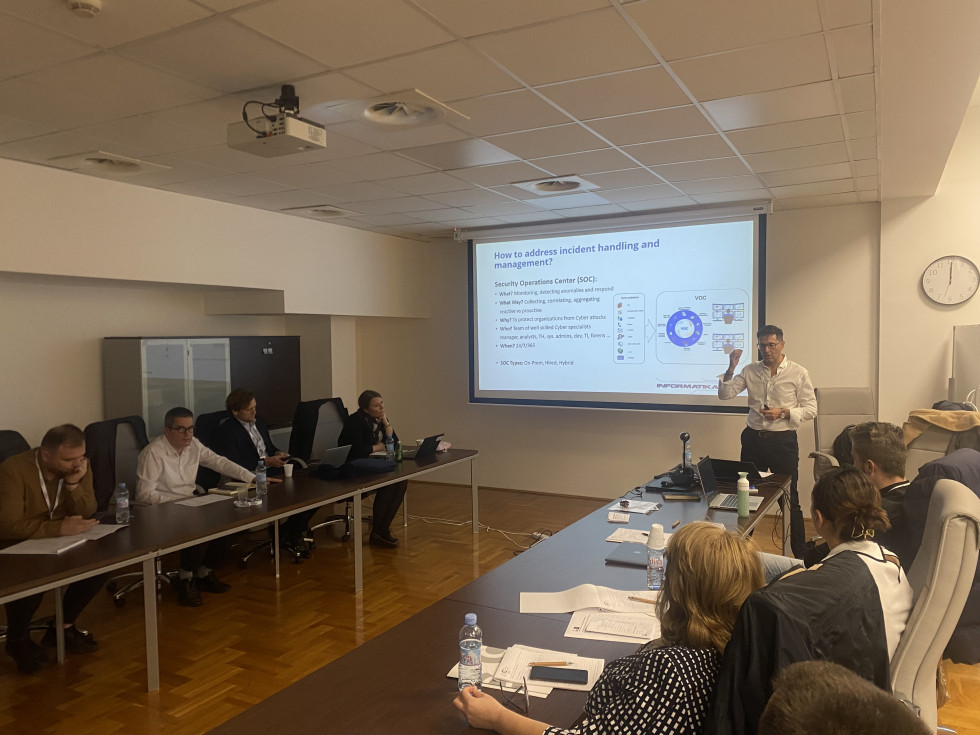WB3C Training for Information Security Officers in Critical Infrastructure and Government Bodies
The programme was interactive and included several workshops. Matjaž Mravljak, Director of the Information Security Inspectorate, URSIV, presented the essential prerequisites for raising the level of cybersecurity in critical infrastructure and government bodies, the role and responsibilities of information security officers, the necessary measures to raise the level of cybersecurity and the documentation that supports effective processes.
Next, representatives of the ECSO as well as Slovenian and French companies presented various aspects of cyber security, including how artificial intelligence is changing the cyber security landscape, how AI-powered security solutions help organisations detect and respond to cyber threats, and what post-quantum cryptography is and why it is important.
Participants also learned about the obligations arising from the EU Directive NIS2 and how to effectively prepare for it. The CISO of a major energy company gave a presentation on the biggest cyber security threats, which was followed by contributions on the different tools and approaches that can be used to counter them. The Slovenian Embassy in Podgorica hosted a reception where the Slovenian Ambassador Bernarda Gradišnik addressed the participants.
The workshops focused a lot on group work and building a network of experts, as this will be beneficial for their future work. Organisational support for the training was provided by the Centre for European Perspectives (CEP) and the workshops were held at the University of Montenegro.
The final certificates were awarded by Dušan Polović, Director General of the Directorate for Infrastructure and Information Security, Ministry of Public Administration of Montenegro, Danilo Brajović from the Directorate General for NATO and Security Policy, Ministry of Foreign Affairs of Montenegro, Cédric Grousset, Project Manager - Director of WB3C Studies, and Ivana Boštjančič Pulko, Head of the International Affairs Division, URSIV, who designed the training programme.


